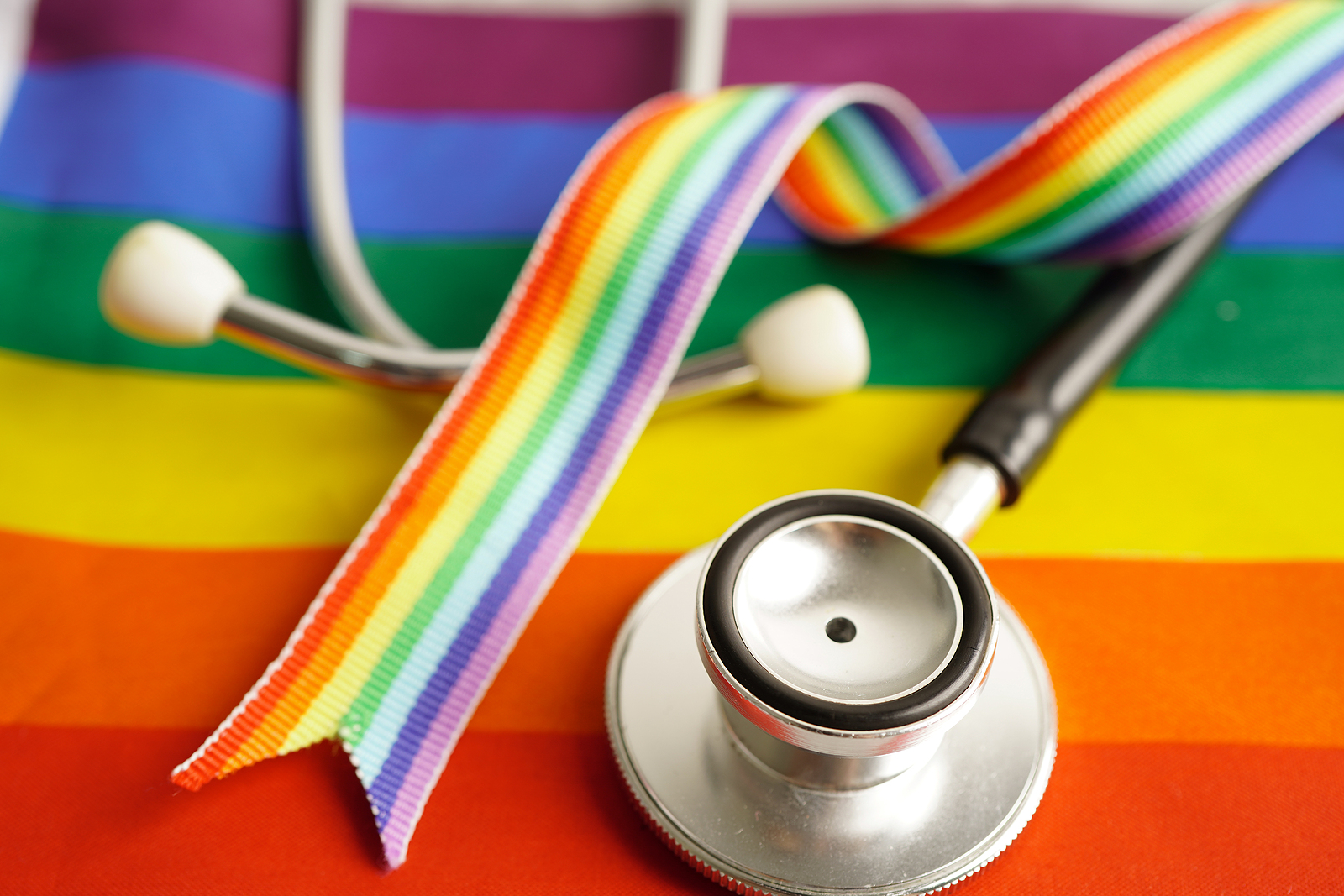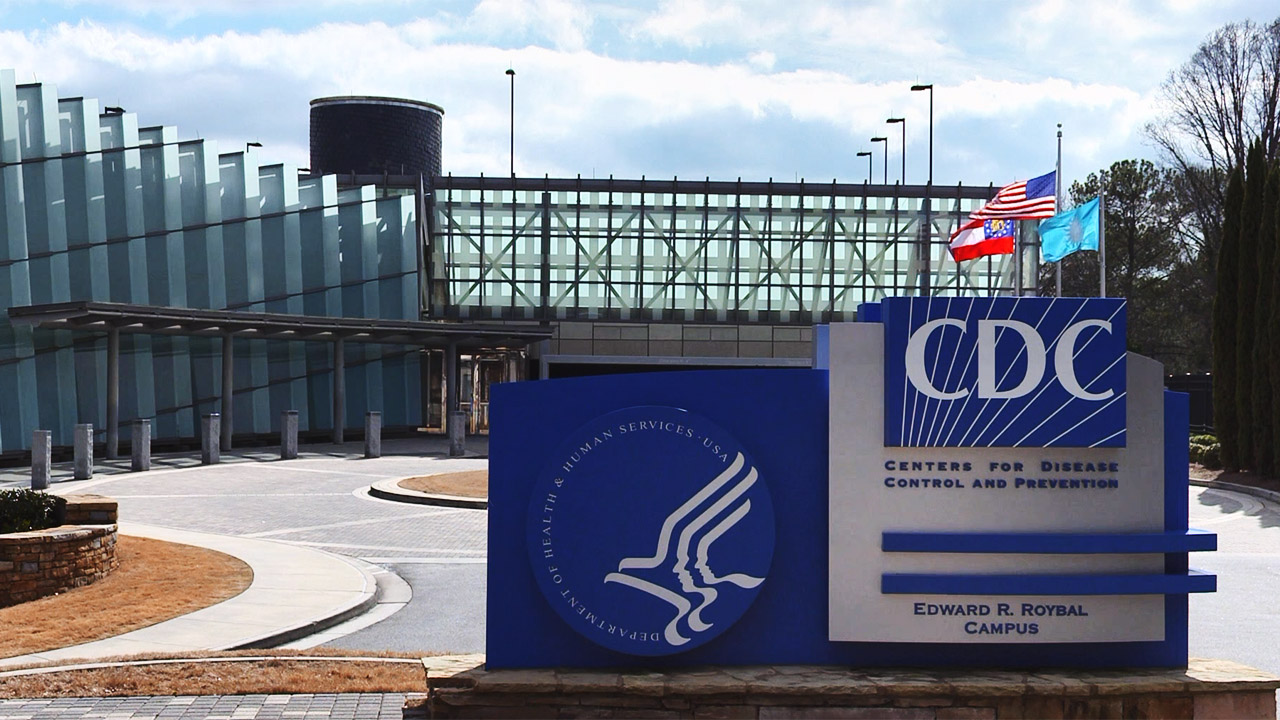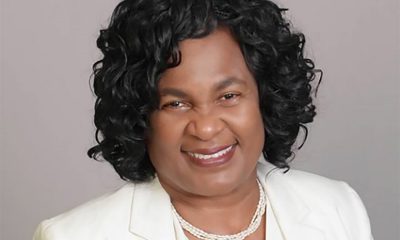Health
Take Pride in Your Health: Tips from a Primary Care Physician
Navigating health care can be daunting, especially for those who identify as LGBTQ+. Historically, the LGBTQ+ community has been marginalized and discriminated against, which has led to mistrust and unease for many who seek medical care.

Navigating health care can be daunting, especially for those who identify as LGBTQ+. Historically, the LGBTQ+ community has been marginalized and discriminated against, which has led to mistrust and unease for many who seek medical care.
In Washington, DC, individuals identifying as LGBTQ+ comprise 9.8% of the population, a greater percentage than in any state. Individuals from this community are almost three times more likely to report poor quality of care and discrimination by healthcare providers. Nearly three in 10 of those who identify as transgender reported being refused healthcare because of their gender identity. Patients who identify as LGBTQ+ are less likely to seek preventive services such as cancer screenings and treatment for chronic conditions. And are more than two times more likely to delay getting care.
As we recognize Pride Month, I want to offer a few suggestions for finding healthcare providers committed to care equity and navigating the healthcare system so you can get the support you need to be healthy. Below are three tips to guide your care.
Find a doctor who’s an ally: The first important step is to find a doctor with whom you can speak honestly about your sexual health, gender identity, and health concerns. Look for a caring practitioner with special expertise in treating the LGBTQ+ population. Review the physician’s profile, looking for their level of interest and experience in treating the LGBTQ+ community. To get started with a new provider, I suggest scheduling a meet-and-greet appointment with a primary care provider to review your personal medical history, family history, specific concerns and health goals. From there, you and your doctor can establish a health regimen that includes any necessary lab work, screenings, and office visits to best support your total health. Gender-affirming healthcare, if desired, should be discussed.
Kaiser Permanente offers Pride Medical at Capitol Hill Medical Center, a welcoming, judgment-free, compassionate, and supportive medical practice devoted to meeting the unique health care needs of adult patients who identify as LGBTQ+. Kaiser Permanente’s gender-affirming care program, Gender Pathways, takes an innovative approach to providing care to transgender, nonbinary, and gender-expansive patients. Their services include behavioral health care, hormone replacement therapy, and gender-affirming surgeries.
Know your risk factors: Understanding the unique health needs within the LBGTQ+ community is key to staying healthy. As people within the LGBTQ+ population face daily discrimination, some cope with these challenges by using tobacco and substances. In fact, there are higher rates of substance abuse for individuals who identify as LGBTQ+ than among heterosexual adults.Some populations within the LGBTQ+ community have a higher risk of sexually transmitted diseases, including HIV. The LGBTQ+ population also has a higher risk of developing certain cancers.To address your specific health risks and goals, your doctor can develop an individualized care plan that will include preventative screenings and routine appointments designed to identify and address problems early, leading to better health outcomes.Kaiser Permanente’s electronic medical record system proactively identifies the need for general health screenings and sends personalized reminders.
Manage your mental health: At Kaiser Permanente, we encourage preventive health measures to avoid developing health conditions like heart disease or cancer – and the same goes for mental health. Members of the LGBTQ+ group are more than twice as likely as cisgender heterosexual adults to have a mental health condition, such as depression or anxiety disorders. And, adults who identify as transgender are nearly four times as likely as cisgender adults to have a mental health condition. You can manage stress through exercise and using self-care digital apps, such as Calm or myStrength, free to Kaiser Permanente members. These tools can guide meditation and find support for building resilience, setting goals, and making minor changes to improve sleep, mood, and relationships. Prioritize frequent exercise, talking to someone you trust, journaling, and making time for self-care. As always, talk to your doctor if your mood or behavior changes affect your ability to participate in everyday activities.
You can become a self-advocate and receive the healthcare you need by establishing a rapport with a doctor you trust, knowing your specific health risks, and managing your mental health. Live a joyful, healthier life by seeking support from a primary care doctor and maintaining your routine screenings. Learn more about Pride Medical and LGBTQ+ care at Kaiser Permanente here.
Dr. Keith Egan, a primary care physician at Kaiser Permanente and assistant medical director of Pride Medical at Capitol Hill.
Health
UNAIDS to commemorate Zero Discrimination Day’s 10th anniversary
UN agency urges global action to protect human rights

As the world marks the 10th anniversary of Zero Discrimination Day; UNAIDS is sounding the alarm on the increasing threats to human rights, calling for renewed efforts to protect the rights of all individuals as a fundamental step towards ensuring health for everyone.
Established by UNAIDS a decade ago, Zero Discrimination Day aims to promote equality and fairness regardless of gender, age, sexuality, ethnicity or HIV status. The progress achieved over the past years is now in jeopardy, however, due to rising attacks on the rights of women, LGBTQ people and other marginalized communities.
UNAIDS Executive Director Winnie Byanyima emphasized the critical link between protecting human rights and safeguarding public health.
“The attacks on rights are a threat to freedom and democracy and are harmful to health,” she said in a press release. “Stigma and discrimination obstruct HIV prevention, testing, treatment and care and hold back progress towards ending AIDS by 2030. It is only by protecting everyone’s rights that we can protect everyone’s health.”
Despite challenges, there has been notable progress.
At the onset of the AIDS pandemic more than 40 years ago, two-thirds of countries criminalized consensual same-sex sexual relations. They are now decriminalized in two-thirds of countries. An additional 38 countries around the world have pledged to end HIV-related stigma and discrimination, contributing to positive changes that include 50 million more girls attending school compared to 2015.
To sustain and enhance these advancements; UNAIDS urges global support for women’s rights movements, LGBTQ rights, racial justice, economic justice, climate justice and peace initiatives. By standing with communities advocating for their rights, the U.N. aims to reinforce the collective effort towards a more inclusive and equitable world.
Zero Discrimination Day is observed on March 1.
Events and activities that will take place around the world throughout the month will serve as reminders of the essential lesson and call to action: Protecting everyone’s health is synonymous with protecting everyone’s rights.
“Through upholding rights for all, we will be able to achieve the Sustainable Development Goals and secure a safer, fairer, kinder and happier world — for everyone,” said Byanyima.
Health
New CDC report finds transgender women at higher risk for HIV
More than 1,600 people in seven cities surveyed

The Centers for Disease Control and Prevention issued a new study report this week that revealed that restricted by employment and housing discrimination and lack of access to needed gender-affirming healthcare for transgender women increasing the risk of contracting HIV.
Researchers reviewed data from a 2019-2020 survey, the National HIV Behavioral Surveillance Among Transgender Women, which found that the demographics of HIV/AIDS have been disproportionally high, especially among Black and Latina trans women, who had experienced employment and housing discrimination coupled with lack of access to gender-affirming healthcare.
The Jan. 25 Morbidity and Mortality Weekly Report was based on data studies of more than 1,600 trans women in seven major urban locales. Participants from Atlanta, Los Angeles, New Orleans, New York, Philadelphia, San Francisco and Seattle were chosen by referrals from people and community-based organizations who knew or were part of the local population of trans women.
The study’s researchers noted: “Employment discrimination occurs at the overlapping nexus of poverty, homelessness, incarceration, health insurance, disability, food insecurity and survival sex work. These issues are interconnected.”
The study stated that trans women’s inability to access quality healthcare, including gender-affirming treatment or access to PrEP, and can expose them to potential incarceration as many turn to “survival sex work” and violence, which increases the risk of contracting HIV.
The study’s author’s pointed out: “When economically marginalized transgender women are refused employment, this refusal cyclically contributes to economic hardships. This analysis …demonstrates the importance of transgender women working and living with dignity and without fear of unfair treatment.”
Health
A Whole New Perspective on Well-Being
The Mather’s team recognizes that everyone’s wellness journey is completely unique to their life experiences and influences.

It’s easy to spot the distinctive, elegant silhouette of The Mather, a Life Plan Community for those 62+ opening this spring in Tysons, Virginia. What is not apparent to the naked eye is The Mather’s unique wellness philosophy, which is literally built into the community.
The Mather’s team recognizes that everyone’s wellness journey is completely unique to their life experiences and influences.
Nature is one of the important factors that contribute to well-being. So The Mather is incorporating biophilic design—a design approach to facilitate access to nature or things that replicate natural patterns. This can include interior spaces with sightlines to a garden, choosing natural wood and stone as interior materials, or incorporating fragrant flowers and plants indoors to spark memories and provide tactile opportunities such as gardening.

“Providing biophilic design within interior settings connects residents to the natural world,” says Mary Leary, CEO and President of Mather, the organization behind The Mather. “Research shows that a connection to nature provides positive benefits to mental states and overall well-being. At The Mather, biophilic design is the intersection of buildings and programs with nature in an urban setting.”
“The Mather is attracting a diverse group of older adults,” says Mary. “As a result, we aim to incorporate wellness practices from around the world, including Wyda movement theory of the Celtic Druids, which helps people achieve harmony with nature and contentment through mindfulness.” This holistic regenerative approach is similar to Qi Gong and yoga, while born in a different part of the world. Mather Institute has a special focus on mindfulness to support older adults’ practice of present moment awareness, which can lead to increased overall well-being, compassion, and joy.
A very different example of a wellness offering at The Mather is the Gharieni Welnamis spa wave bed, which uses computer-controlled vibrational therapy and audio frequencies to train the brain to relax. “The bed increases mindfulness, concentration, and creativity—all of which support our mission of creating Ways to Age Well,SM” says Mary.
These and other personalized ways to wellness will ensure that residents of The Mather can choose from seemingly countless ways to focus on their well-being. In other words, the sky’s the limit!
-

 State Department4 days ago
State Department4 days agoState Department releases annual human rights report
-

 District of Columbia2 days ago
District of Columbia2 days agoCatching up with the asexuals and aromantics of D.C.
-

 South America2 days ago
South America2 days agoArgentina government dismisses transgender public sector employees
-

 Politics5 days ago
Politics5 days agoSmithsonian staff concerned about future of LGBTQ programming amid GOP scrutiny













